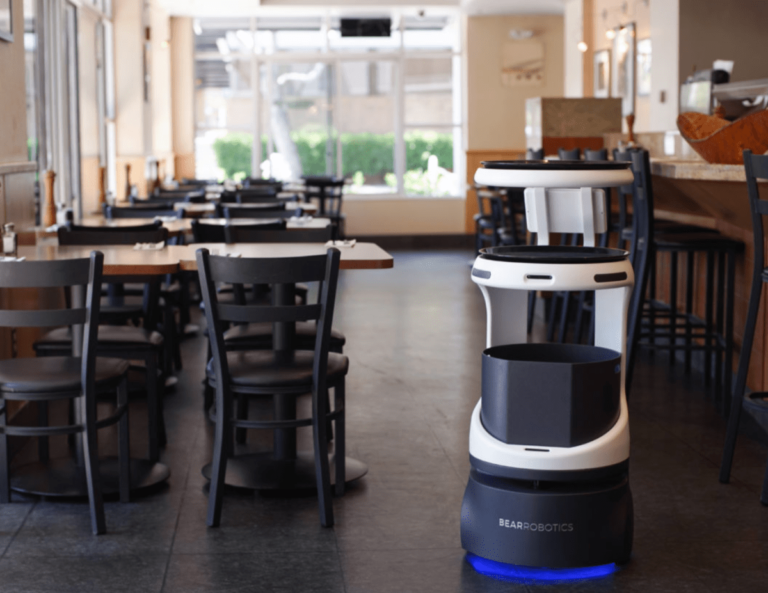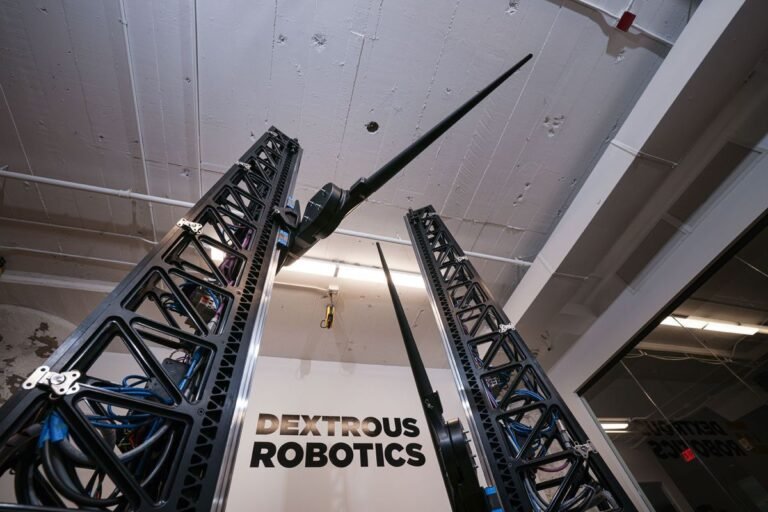
Locus Robotics’ success is a tale of focusing on what works CEO Rick Faulk discusses the company’s new software, the state of the industry and the future of humanoids“We’re fundamentally a software company,” Locus CEO Rick Faulk says with a laugh.
We look like a robot company, but we’re actually a software company.”It’s a familiar refrain from companies whose most public-facing products are hardware.
That’s certainly the case with Locus, which produces the best-known AMRs (autonomous mobile robots) not made by Amazon.
Former executives from the robotics startup launched their own Locus competitor, 6 River Systems.
Asked whether Locus will be the company to bring that technology to the warehouse, Faulk responds, “We will.

LG Electronics may no longer be a household name in smartphones, but it still sees a big future in gadgets like robots.
Today, the company confirmed a $60 million investment in Bear Robotics, the California startup that makes artificial intelligence-powered server robots for restaurants and other venues — autonomous tray towers on wheels that are meant to replace waiters.
With the investment, LG Electronics becomes Bear’s largest shareholder.
We’ve contacted Bear and LG for further comment.
The Korean electronics company has been researching and developing software and hardware in robotics.

Agility Robotics’ new CEO is ‘focused on the here and now’ The Digit-maker’s current and former CEOs discuss Amazon, Generative AI and last-mile deliveryThere was nothing else like Digit on the ProMat floor last year.
This week, Agility named Microsoft veteran Peggy Johnson its second-ever CEO.
They’re just focused on a handful of use cases that Digit can provide value for.”Perhaps the biggest difference between Agility and the growing army of humanoid robotics startups is its sizable head start.
The firm was founded in 2015 as a spinoff of Hurst’s work on legged robotics at Oregon State University.
While Agility isn’t explicitly looking to raise at the moment, the company says the possibility is always on the table.

It did so, however, with the ambitious goal of creating a walking bipedal robot in a year’s time.
Humanoid robots are having a moment.
The goal of the deal is to “develop next generation AI models for humanoid robots,” according to Figure.
“We are excited to collaborate with Figure and work towards accelerating AI breakthroughs,” says Microsoft Corporate VP, Jon Tinter.
Mechatronics are easier to judge in a short video than AI and autonomy, and from that perspective, the Figure 01 robot appears quite dexterous.

In the past several years, the kitchen has increasingly become a focal point for the world of automation.
Others, including Zume Robotics, have been less successful – the pizza robot firm shut its doors last year after attempting a major pivot into Earth-conscious food packaging.
The new cash infusion follows a January 2021 raise of $7.7 million, bringing the total funding up to $22.5 million.
MaC Venture Capital, MFV Partners, Interwoven Ventures and Alumni Ventures joined existing backers, Construct Capital, Kleiner Perkins, Promus Ventures and Red and Blue Ventures.
Chef isn’t revealing specific sales figures, only saying that it has “robots at food companies in five cities around the US and Canada” including “Fortune 500 food companies.” Bhageria also tells TechCrunch that it has quadrupled “recurring revenue from 2022 to 2023,” though, again, nothing more specific than that.

Of late, one of the most intense ones centers around humanoid robots.
Humanoid robots can, however, now claim a big tech name among their ranks.
Bill Gates this week issued a list of “cutting-edge robotics startups and labs that I’m excited about.” Among the names are three companies focused on developing humanoids.
An endorsement like this might not move the needle too far in the humanoid direction, and Gates is very much not a roboticist.
It is, however, enlightening to see the form factor continue to gain more mainstream legitimacy by the day.

Of late, one of the most intense ones centers around humanoid robots.
Humanoid robots can, however, now claim a big tech name among their ranks.
Bill Gates this week issued a list of “cutting-edge robotics startups and labs that I’m excited about.” Among the names are three companies focused on developing humanoids.
An endorsement like this might not move the needle too far in the humanoid direction, and Gates is very much not a roboticist.
It is, however, enlightening to see the form factor continue to gain more mainstream legitimacy by the day.

Muscle mass tends to decline as you get older, impacting your walking and increasing the risk of falls.
“Using the wearable robot EX1, older adults can effectively perform simple exercises such as walking and fitness, thereby improving their quality of life,” says research lead, Professor Wan-hee Lee.
“Our findings provide a solid foundation for developing various types of improved and advanced wearable robots,” Lee.
“This will further expand the global wearable robot market, promoting further research and commercialization.”It’s not certain when or if the Samsung EX1 might actually hit the market.
Even so, anticipate assistive wearable robotics becoming a lot more prevalent over the next decade.

Remember that robot chef Samsung “debuted” at CES 2020?
At least the “return” of Ballie demonstrated that Samsung hasn’t lost interest in the home robot.
So why — after 20+ years — do we have little more to show for it than a bunch of robot vacuums?
Instead, conservatively tens of millions of dollars go into R&D across countless companies aimed at building a better robot vacuum.
Matic is — for most intents and purposes — yet another robot vacuum looking to make a name in a very crowded space.

Memphis-based Dextrous Robotics is calling it a day.
The news, noted by the Robot Report, was confirmed by the warehouse robotics firm’s CEO, Evan Drumwright, on LinkedIn.
Last year, Dextrous made headlines for its novel approach to truck unloading.
The titular dexterity (not to be confused with fellow truck unloading robot firm Dexterity AI) allows the system to approach boxes from a variety of vantage points and angles.
“We started Dextrous Robotics four years ago to organize our world with machines and focused on automating one of the most dangerous tasks in the industrialized world,” says Drumwright.













